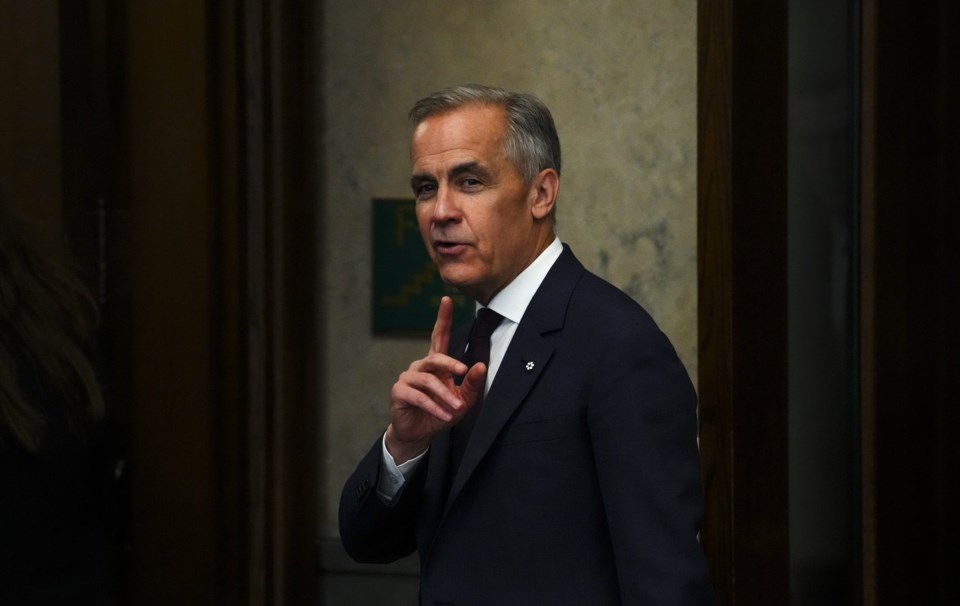OTTAWA — Canada has unveiled its priorities for the G7 leaders' summit just one week before it gets underway in Alberta as the government defends its decision to invite India to the summit.
Prime Minister Mark Carney's office says Ottawa's top priority for the summit will be strengthening global peace and security, which includes countering foreign interference and transnational crime, as well as improving responses to wildfires.
His office also says Canada will focus on spurring economic growth by improving energy security, fortifying supply chains for critical minerals and accelerating the use of artificial intelligence.
Lastly, Canada will discuss creating jobs by securing partnerships to open new markets and generate large infrastructure investments.
In addition, Canada plans to use its invitation for guests outside the group to discuss how to secure a lasting peace in Ukraine, and to "build coalitions with reliable partners."
Carney is hosting the summit in Kananaskis, Alta., from June 15 to 17, welcoming U.S. President Donald Trump on his first visit to Canada during this presidential term.
Canada is expecting to welcome leaders of the other liberal democracies that make up the G7: the United Kingdom, France, Germany, Japan, Italy and the European Union.
Analysts say the summit has come together under a time crunch, with Ottawa choosing the June date months ago before former prime minister Justin Trudeau resigned and a federal election campaign — which traditionally slows work in the public service.
In addition to the G7 members, the host country can invite other leaders in order to give priority nations a voice at the summit.
Carney revealed on Friday he had extended an invitation to Indian Prime Minister Narendra Modi, despite the RCMP accusing New Delhi of widespread acts of murder, extortion and coercion primarily against Sikh activists in Canada, including an assassination near Vancouver two years ago.
At least four other international leaders have accepted their invitations to Kananaskis: Ukrainian President Volodymyr Zelenskyy, Australian Prime Minister Anthony Albanese, South African President Cyril Ramaphosa and Brazilian President Luiz Inácio Lula da Silva.
Mexican President Claudia Sheinbaum has said she's considering Canada's invitation.
The NDP and major Sikh groups in Canada have condemned Carney's decision to invite Modi, arguing the move puts economic concerns ahead of human rights.
Supriya Dwivedi, a former senior advisor to previous prime minister Justin Trudeau, derided the invitation as Carney's government "thinking some Canadian lives matter more than others," she wrote on the platform Bluesky.
"It will also be incredibly difficult to take anything this (government) says on transnational repression and foreign interference seriously given this pivot," she wrote.
Others have said it's time for Canada to manage security issues through a structured process with India and not let the criminal allegations and India's concerns about Sikh separatism dominate the bilateral relationship.
At a virtual news conference Saturday, Foreign Affairs Minister Anita Anand stressed her government "will not undermine" the RCMP investigation into alleged criminality by Indian agents.
"The fact that leaders from a number of countries have been invited to this meeting does not, and should not, detract from the importance of the independent investigation that is ongoing and the rule of law considerations which are absolutely paramount," she said.
Anand said Carney decides which countries get an invitation, and was circumspect about what criteria Ottawa is using to choose which leaders to invite.
"The meeting will allow global leaders to discuss issues of global concern, which is the general purpose of this meeting, and we are honoured to be able to invite leaders to our country," she said.
"The prime minister will be hosting these leaders for a discussion (on) very serious issues that affect the global economy and the geostrategic environment."
This report by The Canadian Press was first published June 7, 2025.
Dylan Robertson, The Canadian Press




